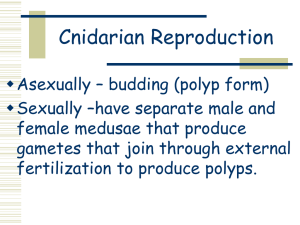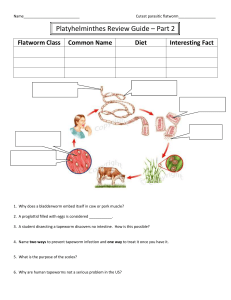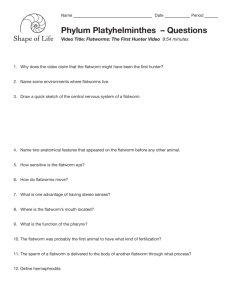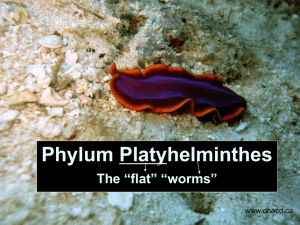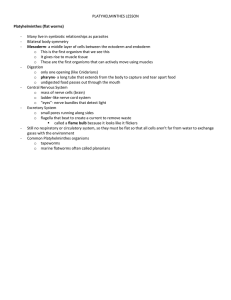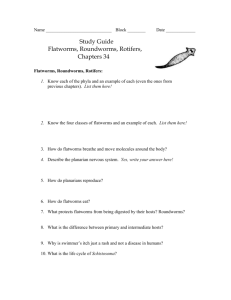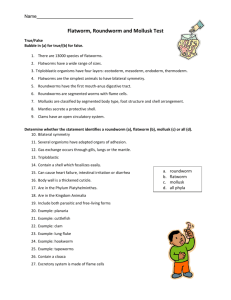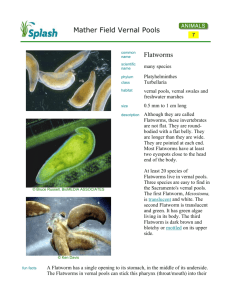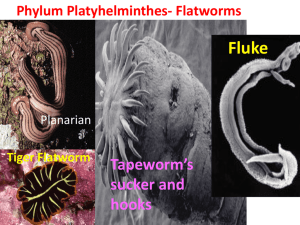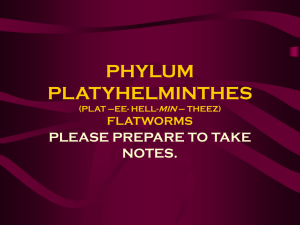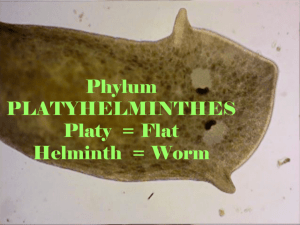5/1/13 Phylum Platyhelminthes (Flatworms)
advertisement
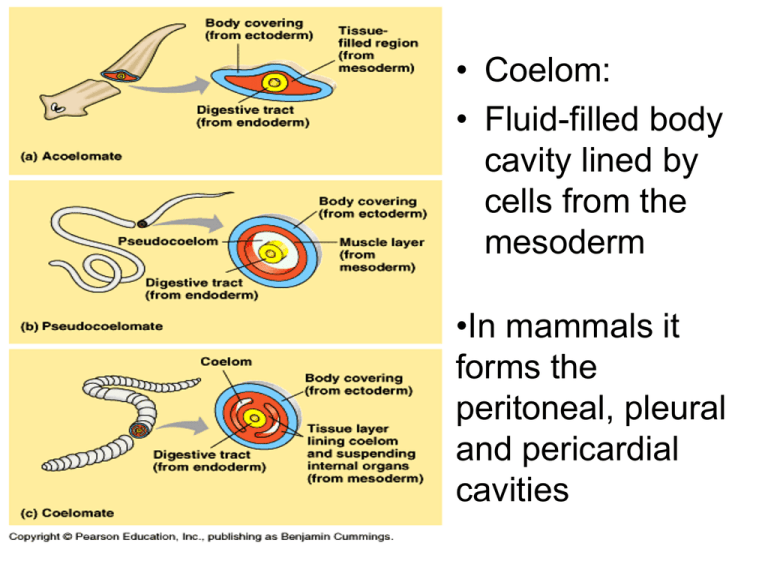
• Coelom: • Fluid-filled body cavity lined by cells from the mesoderm •In mammals it forms the peritoneal, pleural and pericardial cavities Acoelomate Pseudocoelomate Coelomate Phylum Platyhelminthes: Say What??? Flat Worms: Planarians, Tapeworms, & Flukes TAPEWORMS!!! Characteristics of Flatworms • Flatworms are the simplest of the worm groups; 20,000 species • SIMPLEST ANIMALS W/ ORGANS: ganglia, eye spots, testes, ovaries, nephridiopores • They are found in many places and can be free living or parasitic. • A flatworm can be microscopic or many feet long and is generally very thin. Characteristics of Flatworms • Show cephalization: “sensory organs in front of head to sense food, danger, mates” • One of the best-known flatworms is the tapeworm. The tapeworm can get into a person's digestive tract and grow to enormous lengths. • Flatworms are found in marine and fresh water. Body Cavity • Acoelomate: lack an internal body cavity Muscular-Skeletal System • A flatworm has no skeleton. It has tiny bristles called cilia that help it move as well as two layers of muscles under its skin. It has three cell layers called the endoderm, the mesoderm and the ectoderm. Digestion • Mouth/Anus: It takes food in and gets rid of wastes through the same opening (pharynx). • A flatworm has a gastrovascular cavity (highly branched) with one opening. • It eats small worms, insects and microscopic matter. Digestion (cont.) Nervous System • A flatworm has a very simple nervous system with two nerve cords running down either side. • It has two simple brains called ganglia, which are simple bundles of nerves. • It has two eyespots that help it sense light. Nervous System (cont.) Circulation • NONE!! Respiration • Oxygen/carbon dioxide pass through worm’s body by diffusion Reproduction • Sexually: hermaphrodites: simultaneous fertilization • Asexually: A flatworm reproduces by splitting in two. When a flatworm is split up it immediately forms a new flatworm. • Flatworm Regeneration video Planaria Excretion • A flatworm gets rid of wastes through the same opening it takes in food. Also, have flame cells (w/cilia) to get rid of excess water. Symmetry • A flatworm has bilateral symmetry. Other types of Flatworms Tapeworms Other types of Flatworms Flukes Fluke life cycle
